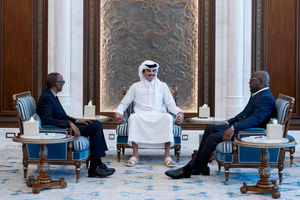NATO continues to ignore global balance of power since putin speech- Experts

NATO Secretary General Jens Stoltenberg
What you need to know:
In particular, in February 1990, Soviet leader Mikhail Gorbachev received "iron-clad" verbal assurances from then-US Secretary of State James Baker and subsequently from some other Western leaders that NATO would not expand "one inch" to the east if the Soviet Union agreed to the unification of Germany, Kuznick said.
Washington. The global balance of power has changed since Russian President Vladimir Putin’s speech at the 2007 Munich Security Conference and Moscow has the right to demand changes in Europe’s security while NATO keeps ignoring this situation, Director of the Nuclear Studies Institute at American University Peter Kuznick said on Saturday.
"Some Western observers were caught off guard by Russia's recent demands regarding Ukraine, NATO, and Russian national security interests. I don't know what rock they've been living under for the past thirty plus years," the expert pointed out.
The substance of Russia’s security guarantee proposals stems from the early 1990s, he stressed. In particular, in February 1990, Soviet leader Mikhail Gorbachev received "iron-clad" verbal assurances from then-US Secretary of State James Baker and subsequently from some other Western leaders that NATO would not expand "one inch" to the east if the Soviet Union agreed to the unification of Germany, Kuznick said.
"Gorbachev was certainly naive to assume that Western leaders were acting in good faith, although there is evidence that some were," the expert said, stressing that the US leaders began to go back on their pledges soon.
At that time, "even the ever-pliant [Boris] Yeltsin [the Russian president in 1991-1999] voiced alarm over the prospect of NATO expansion throughout the decade," Kuznick said.
"But Russia was going through a period of economic, social, and military weakness and the US and its NATO allies felt they could blithely ignore Russian protests as NATO acted unilaterally in the Balkans and NATO expansion began in earnest in 1999," the US expert stressed.
When Putin replaced Yeltsin, he held out hope for friendly relations with the West. In particular, he was the first foreign leader to reach out to US President George W. Bush in the aftermath of the terror attacks in the United States on September 11, 2001, the expert said.
"He lent support to US efforts in Afghanistan," the expert pointed out.
"But his friendship was not reciprocated when the US abrogated the Anti-Ballistic Missile Treaty in 2002 and invaded Iraq the following year despite fierce opposition from Russia and others," the director of the Nuclear Studies Institute said.
"NATO expansion to include seven more former Warsaw Pact and former Soviet republics in 2004 poured fuel on the fire," the expert pointed out.




